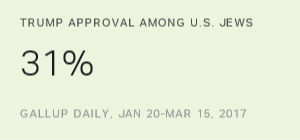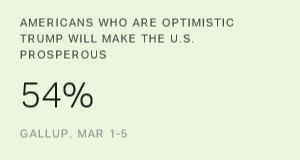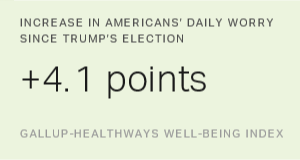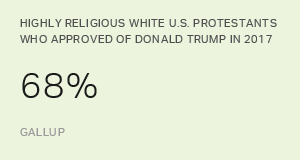President Donald Trump's actions and policies have sent mixed signals to American Jews about their position in the country and his administration's stance toward Israel.
Trump was criticized for being slow to denounce a wave of anti-Semitism, did not mention Jews in his statement on Holocaust Remembrance Day and appointed Steve Bannon, who has been accused of making anti-Semitic comments, as his chief strategist.
But Trump ultimately denounced anti-Semitism and relates to American Jews by emphasizing that his daughter and son-in-law, Ivanka Trump and Jared Kushner, are Jewish.
Trump has taken some actions that signal he holds a strong pro-Israel stance. Before he took office, he denounced a U.N. resolution criticizing Israeli settlements on disputed land, condemned the Iranian nuclear deal and pledged to move the U.S. embassy from Tel Aviv to Jerusalem. He also appointed a U.S. ambassador to Israel, David Friedman, who supports Israeli settlements.
But since taking office, he has cautioned President Benjamin Netanyahu to "hold off" on building new Israeli settlements, tempered his promise to relocate the U.S. embassy to Jerusalem and invited Palestinian leader Mahmoud Abbas to visit the White House.
During Trump's time in office so far, encompassing a little less than two months, American Jews have given him a 31% job approval rating -- 11 percentage points below his overall average of 42% during the same period.
This below-average rating of the Republican president is not unexpected. The dominant predictor of how an American rates the president is partisan orientation, and Jews tilt heavily Democratic -- 64% identify with or lean toward the Democratic Party (Jan. 20-March 15 data), while 29% identify with or lean toward the Republican Party.
Trump's 31% approval rating among Jews thus reflects this underlying partisan tilt, given that overall 84% of Republicans approve of Trump, compared with 10% of Democrats.
In the last year of his administration, Jewish job approval of President Barack Obama was 65%, about 13 points above his overall national adult average of 52%. This 13-point differential between Jewish and overall Obama approval was the same as observed .
So far, Trump's approval rating among Jewish Democrats -- the significant majority of all Jews -- is little different from his rating among Democrats overall: Both are very low. Trump's approval among the small number of Jewish Republicans in Gallup's samples so far during his term also appears little different from Republicans in general.
This suggests that Jews are reacting to Trump along party lines in about the same way as other partisans.
Trump has a significant opportunity to boost his image among Jews, Americans and the world. During the campaign, Trump talked about using his negotiating skills, and those of Kushner, to reach a peace deal between the Israelis and Palestinians. If Trump accomplishes what his predecessors could not by negotiating a peace deal, this could certainly affect his approval rating not only among American Jews but among all national adults.




